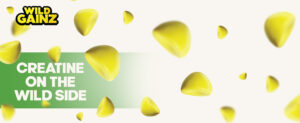Our immune systems are one of the most complex parts of the human body, starting its development in the early stages of pregnancy and continuing throughout infancy all the way through to adulthood.
Without your immune system, your body would be unable to fight off harmful invaders from the outside or harmful changes that occur from within our bodies. The main purposes of the immune system are:
- To fight disease-causing germs and pathogens such as viruses, parasites, fungi or bacteria; and to remove them from the body.
- To fight disease causing changes within the body such as cancer cells.
- To recognise and neutralise harmful substances from the environment.
With the ongoing coronavirus pandemic, there has been a lot of debate over vaccines and their effectiveness. Outlined below is an explanation of how vaccines link to the effectiveness of the immune system.
Your immune system is your bodies first line of defence and is made up of a complex system of cells, organs and systems. The main components of the immune system are white blood cells, antibodies, the spleen, the bone marrow, the complement system, the lymphatic system and the thymus. All of these elements work in synchronisation to provide your body with the strength and ability to fight off disease and illness.
Immunity to diseases is achieved through the creation of antibodies which are triggered by ‘memory cells’ which recognise disease and activate the immune system to fight it.
How do vaccinations work?
Vaccines are an innovative way of creating an immune response in your body through using either a dead or severely weakened virus to essentially trick our bodies into thinking we have already had the disease.
The purpose of a vaccination is:
- Vaccines help to further strengthen the immune system by training it to recognise and fight against specific germs.
While they won’t always stop you from getting sick, vaccines can help to ensure that you are protected from the most dangerous effects of the illness but you may get a milder illness.
What about natural immunisation?
Natural immunity is thought to be achieved though having a disease and your body potentially becoming immune to it in the future.
There are many risks associated with natural immunity as you are exposed to potentially harmful or deadly complications. Whilst vaccinations are not a foolproof method, it has been shown to have a less risk of developing serious or life-threatening complications then when compared with a ‘natural approach’.
Vaccinations also help to protect your family as well as the vulnerable such as the elderly, those with compromised immune systems as well as chronic health conditions such as diabetes or asthma.
What is the best course of action?
No matter your personal beliefs on vaccinations, we can tell from history that without vaccinations crippling illnesses such as smallpox and polio would continue to pose a threat. Whilst there is a small risk of side-effects vaccinations are and continue to be the safest route to protecting yourself as well as the wider community. It is estimated that vaccination programs prevent roughly 2.5 million deaths each year.
What if there is no vaccination available?
While we wait for the development of the vaccination to treat coronavirus (COVID-19) there are a number of measures we can take to ensure that our immune system is strong and we minimise the risk of harm or complications should we become ill.
First up:
- Maintaining social distancing when out in public as well as making sure sneezes and coughs are covered.
- Regularly using soaps and/or hand sanitizer to clean hands, especially before eating, when arriving home or after touching a public surface.
- Seeking medical advice immediately if you feel unwell, no matter your symptoms.
Making sure that we nourish our bodies with vitamins and minerals that provide specific support to the immune system such as:
Vitamin A, B6, B9, B12, C, D, E
Copper
Iron
Zinc
Selenium
In addition, ensuring you get a good night’s sleep, drinking plenty of water and maintaining physical activity are all essential for ensuring your body’s first line of defence is strong and as such you will have a strong immune response to disease. For more detailed information on nutrition and your immune system head over to: https://www.atozpages.com.au/how-to-use-nutrition-to-your-advantage-during-the-coronavirus-pandemic/
BONUS
If you are wanting to improve your overall general health or simply want to have a chat about the best ways to start. Book a free 15-minute consultation to determine the best course of action for you!




